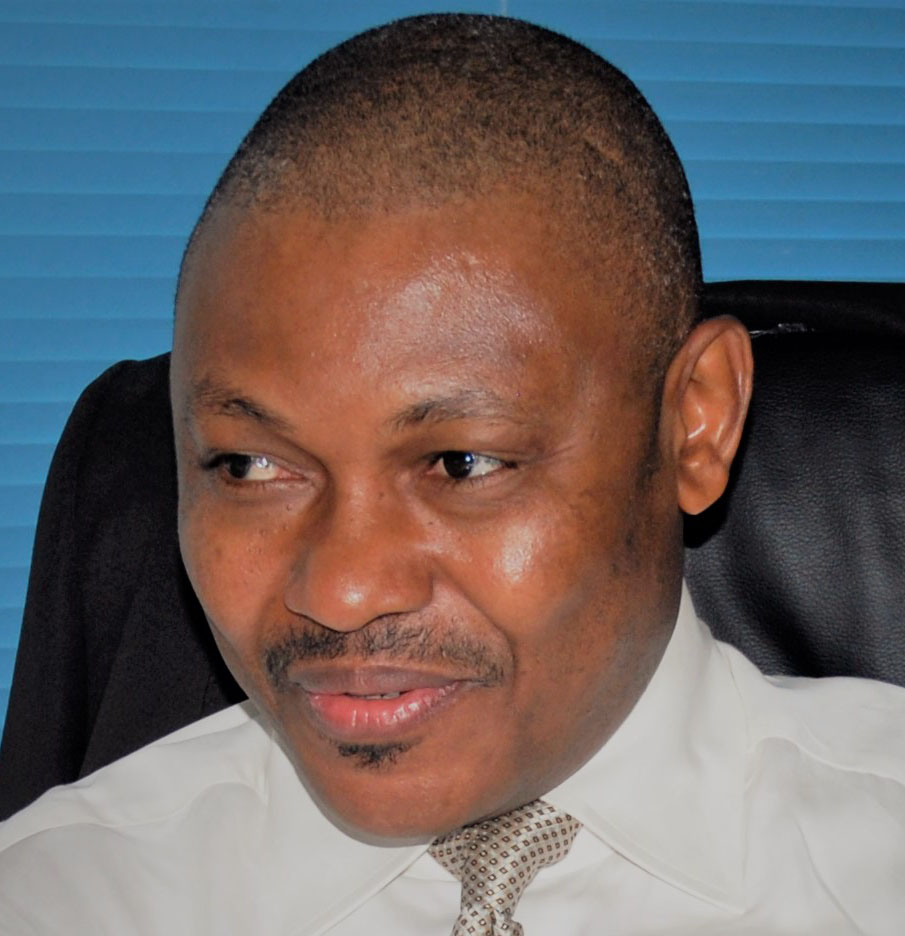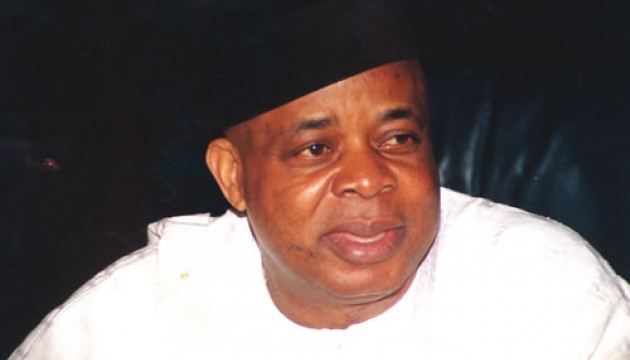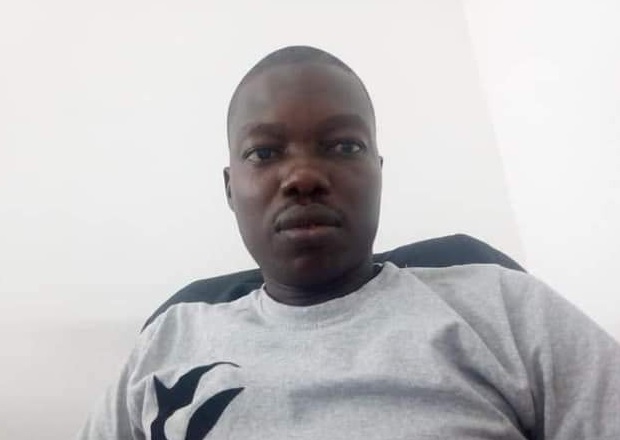Ini Ememobong, the commissioner for information and strategy in Akwa Ibom state, was pleasantly surprised that a ranking member of the ruling All Progressives Congress (APC) would applaud the strides of a state governor elected on the platform of the main opposition party, the Peoples Democratic Party (PDP). And this was at a well-attended event organised by journalists in the state.
The event also had on the head table two past senators, including the secretary of the caretaker/extra-ordinary national convention planning committee, and a former member of the house of representatives of the ruling party. At some point, all of them were members of the PDP, when it was the ruling party in the country.
Ken Nnamani, the president of Nigeria’s 5th senate, himself a former member of the PDP, was in Uyo last weekend at the dinner and award night put together by the state chapter of the Nigerian Union of Journalists (NUJ) to round off its press week. He was the chairman.
He was impressed by the development strides in the state and excited at the transformation of Uyo, the state capital. He attributed it to the quality of leadership, past, and present, that the state has been blessed with. The commissioner who represented the governor at the event savoured the accolades and praised the forthrightness of the former senate president. He said such forthrightness was an attribute of statesmanship.
Advertisement
The commissioner must have encountered Nnamani for the first time in that mode, but forthrightness has become the defining character of the former senate president. He has been known for integrity in leadership. He is hardly associated with pettiness or undue patronage. He exhibits noble traits anywhere he goes and wherever he finds himself. When he made those pronouncements, it was not to impress the governor; after all the man was not there. He did it out of conviction. He was, as usual, just speaking his mind.
Recently he launched a book ‘Standing Strong: Legislative Reforms, Third Term, and other issues of the 5th Senate’, through which he spoke his mind lucidly. The well-received book mainly told in some detail what had already been known of him by those who knew his antecedents. At the Uyo event, he made some clarifications regarding some perceptions thrown up by the book in some quarters.
It would have been abnormal if the book did not throw up issues. Every such book does; so it was not out of place that it did. Applause, kicks, and business as usual are common fares. Some would read and understand it the way it was meant, others would read with a mindset and draw their conclusions, for good or for bad. Nothing peculiar; it goes with the laws of selectivity and subjectivity. Different strokes!
Advertisement
Appearing in the limelight at particular times often opens flanks for censure. Incidentally, Nnamani’s book came at a time the Anambra state governorship election was a hot topic in the public space. Being a caucus member of the ruling APC in the south-east zone, he was ordinarily expected to play a critical role in the build-up and eventual outcome of the election. Both did not come out well. The entire process that led to the failure of his party in that election was not so well received, and some persons thought Nnamani should not be smiling at all after such a mishap.
Given his status in the zone and in the party, he was expected, by some persons, to assert his influence and insist on certain outcomes. That did not happen. So they questioned his claim to “standing strong”. He knew what happened and the likely outcome, but it was not for him, at that time, to wash the party’s dirty linen in the open. He made his position known in relevant quarters. His critics would not hear that as they insist that an elder cannot be in the house while the she-goat suffers childbirth at the tether.
In normal circumstances that would hold, but nothing seems normal in the partisan political landscape. Nnamani has been heard telling his friends that though he is a caucus member of the party in the south-east, he was in Anambra state at the time as a private observer; nothing more. He and some senior party members who are indigenes of the state were greatly disturbed by what happened during the build-up to the election.
Nnamani however suffered from the ailment that afflicts loyal party members – the type that sees catastrophe but becomes impotent, to avoid being branded a spoiler. When the process was disdainfully hijacked by one of the camps, it was obvious the party was going to pay dearly for its complacency. Probably that was why he hurriedly left Awka at cock-crow when he heard the outcome of the charade which took place the previous night. He did not want to be associated with it or to be one of those to tell the sordid story.
Advertisement
Nonetheless, what he tried to avoid during that debacle turned out to be his albatross later. He was accused of being complicit. In politics, there are times silence is golden, even if not glittering. It is more so with the Nigerian brand, but those who are quick at criticising often do not interrogate issues beyond mere assumptions. They lay their vibes on the table of ‘all things being equal’. But things are never equal here.
Nnamani till today laments his party’s loss in that election; more so because he saw the handwriting on the wall but lacked the authority to erase it. There was a body from the party headquarters charged with the process. He was not one of them and had no power whatsoever to interfere or direct. That momentary impotence opened the window for the questioning of the value of his conscience.
Nnamani claims he made his position clear but was ignored. He had no other option than to walk away, given the circumstance. He was never part of it, so the issue of selling his conscience does not arise. He was not alone on this. It was glaring that a good number of those who would have formed the bulwark for the party during that election similarly walked away when their counsel was disregarded. Nnamani probably would not have been the target of the attack on the Anambra matter if he did not come out ‘standing strong’ during that same period. He is from Enugu, not Anambra state.
Besides the Anambra issue, some of his colleagues in the senate claim he did not tell the whole story on the third term issue. Could that have been possible, to tell the whole story in one book? Going through the book, it is obvious that Nnamani was telling his own side of the story, with proper acknowledgment of the relevant roles his colleagues played at the time. He was neither writing the story of the 5th senate nor the full story of Obasanjo’s third term gambit.
Advertisement
At the Uyo event, he reemphasized a point that has been misconstrued. He did not single-handedly stop the Third Term train. He only played the role expected of him as the presiding officer at the time. He ensured that the rules and procedures were followed; a development that resulted in what has come to be regarded as the saviour of Nigeria’s democracy. He told the gathering that he did not take sides – he made sure he did not betray any emotions, either for or against. He just did what was required of his office.
It would have sufficed to give full credit to Nnamani if there was a tie, with him casting a deciding vote. Nothing of the sort happened. It was an overwhelming rejection, and he had to stand by it. He provided leadership with integrity. He emphasised this line of narrative. That is why, on page 261 of the book, while recapping his conversation with Obasanjo’s chief of staff Abdullahi Mohammed shortly after the matter was laid to rest, he wrote: “Tell him (Obasanjo) that we followed the procedure and it (the constitution amendment) failed. Tell him it is over”.
Advertisement
Reading between the lines, the book never indicated that Nnamani was the only one that stood strong. The dedication on page iii says it all. “To the brave and courageous men and women of the fifth senate of the Nigerian legislature (2003 -2007), who stood strong in the face of constant executive pressure, threats, and intimidation to vote on the side of the people”. It’s a clear testimony to the fact that it was a collective act, he only being first among equals.
The story of the “third term” misadventure is like the story of the Nigerian civil war, no one actor can tell it all. There were several sides and a number of actors. It is only when all the major actors tell their own side of the story that it would be the “whole story”. It would therefore be out of place to expect one person to tell the whole story of the third term conundrum in the senate. The field is wide open, anyone who has a story can tell from his own perspective. That would escalate the conversation and enrich the discussion.
Advertisement
Akpandem was at the NUJ Press Week event in Uyo
Advertisement
Views expressed by contributors are strictly personal and not of TheCable.
Add a comment







